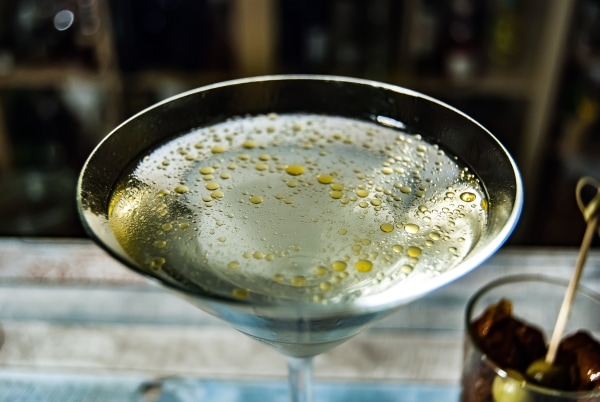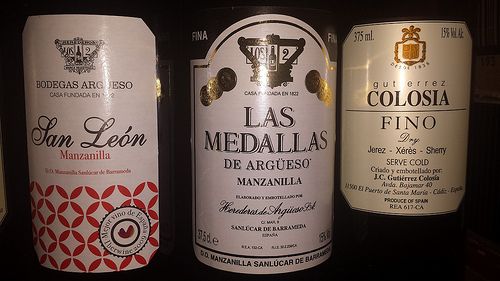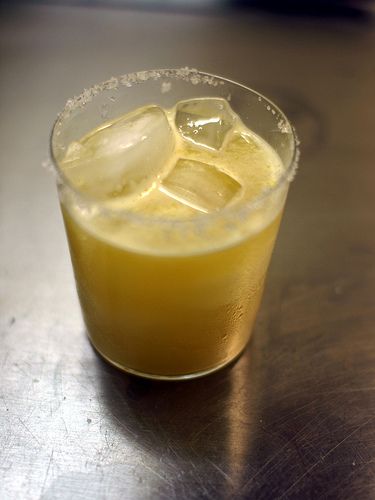Does Vermouth Go Bad?
So you’ve bought a bottle of Cinzano vermouth to make some martinis or Manhattans. Since you don’t make cocktails all that often, after a month or two after opening the bottle you start to wonder: does vermouth go bad?
Or maybe you’ve bought a few more bottles than usual when there was a big sale in the local store, and some of those bottles are still around, 5 years later.
In both cases, you probably decided to do a bit of research before opening the next bottle or continuing the one that sits in the fridge. That’s good instincts right there.
Fortunately for you, vermouths last quite a long time in pretty good condition.
Vermouths are basically fortified wine, so their shelf life is longer than that of your average wine. That’s especially true when it comes to an opened bottle.
If you’d like to learn about storage, shelf life, and going bad of vermouths, continue reading.

How to Store Vermouths
You should store vermouths the same way you store wine. That means you should keep them in a cool and dark area, away from sunlight and any sources of heat.
The pantry is a perfect choice, but a cabinet in the kitchen or a liquor cabinet is okay too. When it comes to liquor cabinets, make sure it’s not one with glass doors (those look nice, but aren’t great for storing alcohol long-term).
After opening the bottle, make sure always to keep it sealed tightly with its original cap when not in use.
Unless you plan on finishing the bottle the same day you open it, keep it in the fridge. That means yes, vermouths, like other wines, should be refrigerated after opening.
Of course, if you don’t put it into the fridge, it won’t go bad or anything. But the quality will decrease much faster than if you chill it in the refrigerator. In other words, keep an opened bottle of vermouth in the pantry at your own risk.

How Long Do Vermouths Last
Some of the more expensive wines are meant to be aged. Vermouths, well, not that much.
Vermouths are great fresh, but that doesn’t mean they can’t sit a few years in the pantry or your wine cellar. Generally speaking, to get the best quality you should use the vermouth within about 3 to 4 years of bottling.
If there’s a best-by date on the bottle, just add 2 to 3 years to it, and you’re good to go. That, of course, doesn’t mean that the wine will go bad after that period. It means that its quality, after a few years of storing, might not be all that great.
Once you open the bottle, vermouths can last surprisingly long while still retaining good quality. They can easily last weeks and even a few months.
Each wine brand has their own suggestions on how long the alcohol retains the best quality after opening. For example, Noilly Prat suggests to finish the bottle in 3 weeks. If you searched for opinions online, you would learn the recommendations are all over the place, between a week up to a few months.
Since sweet vermouths generally retain flavor for longer than dry ones, let’s assume that an average bottle of opened dry vermouth if best for about a month and sweet vermouth for about 2 months. Of course, those periods are just educated guesses.
| Pantry | Fridge | |
|---|---|---|
| Vermouth unopened | 3 – 4 years | |
| Vermouth opened (dry) | 1 month | |
| Vermouth opened (sweet) | 2 months |
Please note that the periods above are for the best quality only.

How To Tell If Vermouth Is Bad
Okay, the first thing you should know is that vermouth spoiling is a rather rare occurrence.
However, if the liquor has developed an off odor, the color has changed, or you have noticed any signs of mold or contaminants in the bottle, discard it. Again, that happens extremely rarely and chances are you won’t ever come across a spoiled wine.
What’s much more likely to happen is that your bottle of Martini will be perfectly safe to drink, but the quality won’t be as good as it used to. As mentioned earlier, that happens most often when you store an opened bottle of any vermouth for a long time. So if you find the flavor somewhat dull, or your expensive bottle tastes more like a cheap one, that’s what happened.
Now it’s your choice what to do with such a bottle. Using it to make a Negroni or another cocktail with a large amount of vermouth might not be a great idea. But testing it in a cheaper cocktail where the taste of the vermouth isn’t that pronounced might work out quite well. If the taste of your vermouth doesn’t quite hit the spot, you can always discard it for quality purposes.
Rotten Records: Share Your Snap!
Caught some food past its prime? Upload your photo to “Rotten Records” and help others spot the signs of spoilage. Every image makes our food community safer and more informed!





